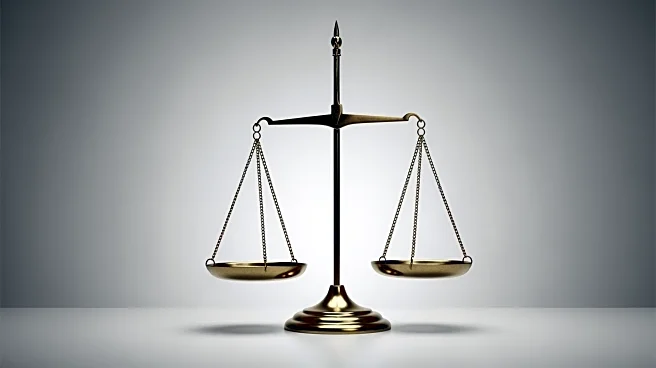What's Happening?
The International Court of Justice (ICJ) has delivered an advisory opinion regarding Israel's legal obligations towards United Nations agencies and other international organizations operating in the occupied West Bank and Gaza Strip. This opinion was
requested by the UN General Assembly following Israel's legislative actions that banned activities by the UN agency for Palestinian refugees, UNRWA, on Israeli territory. Israel has accused UNRWA of being infiltrated by Hamas, a claim that the agency denies. The ICJ's opinion is non-binding but carries significant legal weight, urging Israel to facilitate relief efforts by UN entities, including UNRWA, to ensure humanitarian aid reaches Palestinians in these regions.
Why It's Important?
The ICJ's advisory opinion is crucial as it addresses the ongoing humanitarian crisis in Gaza and the West Bank, where UNRWA plays a vital role in providing aid. The court's decision underscores the international community's stance on Israel's obligations under international law, potentially influencing diplomatic relations and humanitarian operations in the region. The ruling may impact Israel's policies and its interactions with international organizations, affecting the delivery of essential services and supplies to Palestinian populations. The decision also highlights the broader geopolitical tensions surrounding Israel's actions and the international response to humanitarian needs in conflict zones.
What's Next?
Following the ICJ's advisory opinion, there may be increased pressure on Israel from the international community to comply with the court's recommendations. UNRWA and other humanitarian organizations could seek to negotiate with Israeli authorities to resume their operations and supply deliveries. Diplomatic efforts may intensify to ensure that humanitarian aid reaches those in need, potentially involving further discussions at the United Nations and other international forums. The situation remains dynamic, with potential implications for peace negotiations and regional stability.
Beyond the Headlines
The ICJ's opinion may have broader implications for international law and the role of humanitarian organizations in conflict zones. It raises questions about the balance between national security concerns and humanitarian obligations, potentially influencing future legal interpretations and international policies. The decision also reflects ongoing debates about the politicization of humanitarian aid and the challenges faced by organizations like UNRWA in navigating complex geopolitical landscapes.















